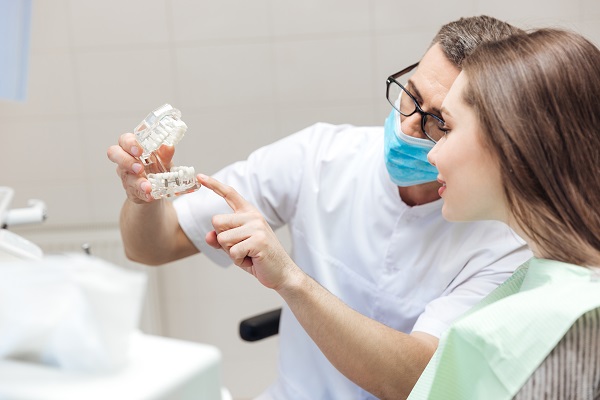What is Minimally Invasive Dentistry?

Minimally invasive dentistry is a great way to conserve the structural integrity of your teeth by preventing tooth decay and treating concerns in a minimally invasive manner. Anyone who is concerned that dental work is too invasive, expensive or requires long recovery times should consider how minimally invasive dentistry can benefit them.
An overview of minimally invasive dentistry
By learning more about what minimally invasive dentistry is and why more dentists are beginning to offer it, you can decide if it is the right approach to oral health. The following is a complete overview of how minimally invasive dentistry is defined, the benefits it can offer and the specific procedures it may involve.
Minimally invasive dentistry defined
In simplest terms, minimally invasive dentistry seeks to preserve and remove as little of the tooth as possible. It is a dental approach that seeks to preserve the integrity of tooth structure and prevent oral health concerns from developing. It involves a detailed assessment of the patient to determine how at risk they are for cavities. The dentist then addresses any risks through various forms of preventive treatment (see below). If treatment is necessary to restore a tooth, the dentist will typically choose the option that involves the least amount of tooth removal.
The benefits of minimally invasive dentistry
Minimally invasive dentistry offers many benefits. Most notably, it can help in the following ways:
- Offers more comfortable treatment options
- Relieves dental anxiety
- Preserves the structure of teeth
- Offers more affordable treatment options
- Offers faster recovery times
In a fast-paced world, shorter treatment times and fast recoveries are important for many. Minimally invasive dentistry is also a great idea for patients with dental anxiety. The main potential drawback to minimally invasive dentistry is that some treatment options may not offer the same long-term reliability as more traditional methods.
The procedures involved in minimally invasive dentistry
Minimally invasive dentistry is a broad term that is applicable to a lot of different scenarios within dentistry. Several of the more common examples of minimally invasive dentistry include:
- Fluoride treatment and remineralization
- Inlay or onlay instead of dental crown
- Night guard to protect teeth form grinding
- Dental sealants to prevent cavities on molars
- Removing wisdom teeth at an opportune time
- Crown repair instead of crown replacement
- Mini dental implants instead of traditional implants
Of course, there are many more examples, and a minimally invasive dentist will always seek ways to prevent oral health concerns and treat them in the least invasive way possible.
How to find a minimally invasive dentist
Many dentists offer minimally invasive dentistry. Talk to your local dentist to find out if they utilize the approach. The best way to determine if a dentist is right for you is to schedule a consultation visit to ask questions and find out if the services they offer (and their prices) are right for you.
Schedule a visit with a minimally invasive dentist
We offer minimally invasive dentistry to help patients prevent oral health concerns and treat them in the least invasive way possible. Contact us by phone or email today to learn more.
Are you considering minimally invasive dentistry in the Edina area? Get more information at https://www.7300FranceDental.com.
Check out what others are saying about our dental services on Yelp: Minimally Invasive Dentistry in Edina, MN.
Recent Posts
After each routine visit to your general dentist, you may receive a few tips or recommendations from your dentist to continue to maintain or boost your oral health. Although these tips vary from patient to patient, there are a few tips that dentists share across the board.Dentists recommend that you brush your teeth at least…
An abscessed tooth is one of the most troubling oral health concerns you could have. This condition not only can affect a single tooth, but it might spread throughout your jaw. If you do not see a general dentist, an abscess could even move into other areas of your body, causing further problems and health…
General dentist are the best resources to utilize when looking to maintain good oral health. They are responsible for providing routine oral care to patients of varying ages. Additionally, they can perform general dentistry procedures, ranging from teeth whitening to dental filling placement. Because general dentists have such a big role in oral health, it…
Wondering if you should choose a general dentist to provide you with dental restoration services? General dentists often perform restoration procedures on their patients. These are typically necessary to improve a patient's oral health.Looking for a new general dentist in Edina? While there are many different types of dentists who can perform dental restorations on…


